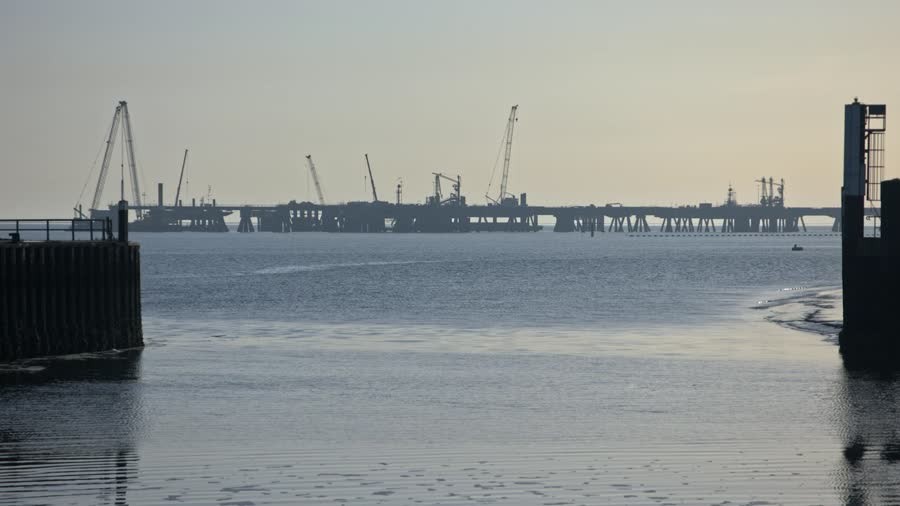A Holiday Destination and Energy Hub
Uniper Develops a Green Hydrogen Project in Wilhelmshaven
While many holidaymakers flock to the North Sea coast during the summer, Wilhelmshaven is an important hub for energy imports all year round. The reason for this is that the Jade Bight is home to Germany's only deepwater port, where large ships are able to dock in the JadeWeserPort regardless of the tide. Wilhelmshaven has been an important hub for oil imports for decades, with oil pipelines stretching all the way to Wesseling near Cologne. Wilhelmshaven—where the Jade Bight is located—also became home to Germany's first LNG terminal at the end of last year. Uniper imports liquefied natural gas via this terminal in order to secure the gas supply in Germany.
During construction of the terminal, care was taken to ensure that components of the infrastructure are H2-ready. Uniper and other companies are also planning further infrastructure at Wilhelmshaven for importing hydrogen and other derivatives. In this way, Wilhelmshaven convincingly demonstrates that fossil fuels are a thing of the past and that decarbonization is being put into practice. The projects also create and secure jobs outside of the holiday season. Many people from the region are involved in the current phase, working hard on transforming the German energy supply.
"Although the operation of the LNG terminal does not require a large team, the numerous follow-up projects at the site will create new jobs. The various projects successively build on one other and aren't completed at the same time, which is beneficial since the coastal region is not a densely populated area and, due to its geographical location, can only be reached from one direction. Running numerous projects side by side would put too much strain on the skilled labor market and the hotel industry," explains Thomas Hohmann, Operations Manager of the LNG terminal. The planned approach will expand the infrastructure gradually, thereby continuously strengthening the economy and importance of the region.
The recently built infrastructure also opens up new possibilities for importing hydrogen. "The energy imports at Wilhelmshaven will not end as a result of the energy transition — rather they will become more significant," says Thomas Hohmann. "My theory is that this LNG project, which we have implemented for the German government, will give the hydrogen economy a real boost," he continues. This is because the plan seeks to use the existing infrastructure for importing green gases, such as ammonia, from 2027 onwards. In addition, there are plans to build an electrolysis plant on a large industrial scale at the site of the decommissioned coal-fired power plant in Wilhelmshaven, which will be powered by electricity from offshore wind farms. All of these activities are part of Uniper's "Energy Transformation Hub Northwest" project.
The Uniper project is receiving a great deal of attention in the region, which benefits existing infrastructures, such as the JadeWeserPort. Other companies are also planning projects related to hydrogen and its derivatives. For this purpose, the economic development department for Wilhelmshaven has created the "Energy Hub Port of Wilhelmshaven" initiative, bringing together many companies and suppliers focused on promoting the subject of renewables in the region.
This blog post is part of a series on Uniper's activities related to the "Energy Transformation Hub Northwest" project.



